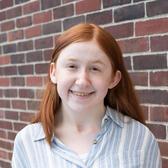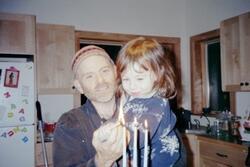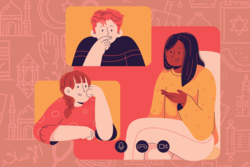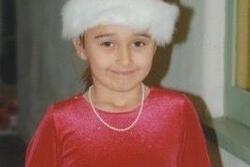"Jewish Enough": Hanukkah for a Small Town Interfaith Teen
For most of my life, I’ve felt like I’m not Jewish enough. For me, I think that feeling has, frankly, been self-imposed. It’s not like you have to know a certain number of prayers or follow every single archaic tradition to be considered Jewish. There’s no test you have to take to prove your Jewishness. Yet, I’ve still often felt like I’m not Jewish enough. Within the last year or two, I’ve realized that I needed to explore that feeling. Instead of avoiding and alienating that part of my identity, I decided to dive into what being Jewish means to me.
I’m from a small, rural town in Ohio—not exactly the epicenter of Judaism. There are very few Jewish people in my town; in fact, I think I might be the first Jewish person many of my peers have ever met. In elementary school, I brought in dreidels and gelt to teach my class about Hanukkah (though my third-grade knowledge of Hanukkah itself was relatively limited.) I attended Sunday school up until second grade, at which point it became too much of a time commitment to drive an hour to the nearest synagogue. My limited exposure to Judaism is a big part of why I didn't feel Jewish enough. I felt uneducated and unqualified: who was I to claim Jewishness?
Additionally, my family is interfaith: I have one mom who’s Jewish and one who’s Catholic. We celebrate Hanukkah and Passover, but also Christmas and Easter. This duality has made me feel like my Jewishness was illegitimate, and my relationship with Judaism felt further complicated by the religious part of it. My practices have varied widely; at one point, I prayed every night and had a strong belief in God. Now, my spiritual beliefs are closer to agnosticism or atheism, and my realization of those beliefs made me question the validity of my identity: If I didn’t engage in religious practices or believe in God, could I really be Jewish?
Despite my concerns about my spiritual and cultural identity, my experiences in Jewish spaces have been positive and enlightening. A few years ago, we visited family members in San Francisco, where one of my cousins is a rabbi, and we had the opportunity to attend one of her services. Though I didn’t know the songs or prayers, I still felt like I could appreciate the service. By looking around the space and interacting with everyone, I realized that members of the congregation were from all different backgrounds. They weren’t interrogating one another about their knowledge of Judaism, and nobody had to prove anything. As we all gathered together and enjoyed the service, I felt welcomed by the community.
The same is true of my experience so far in the Rising Voices Fellowship. Initially, I was hesitant to even apply—again, I wasn’t sure that I was “qualified.” However, when I arrived at the August retreat, my worries faded away. Though I was initially a little intimidated by the extensive knowledge of Judaism possessed by some of the Fellows, I quickly realized that this was a learning opportunity for all of us. We have our Jewishness in common, but our practices vary widely. Our relationships to Judaism don’t make any of us more or less Jewish.
A conversation with family further encouraged me to examine my Jewish identity. Over Memorial Day weekend, my extended family visited us. We hadn’t seen my uncle or cousin in a while, and we spent most of the weekend catching up. Somehow, we landed on the topic of Judaism and what it means to each of us. My cousin’s girlfriend brought up humanistic Judaism, and my interest was immediately piqued; I loved the idea of embracing religion as a cultural identity rather than as a strictly religious one. Learning about humanistic Judaism showed me that I don’t have to believe in God to justify my Jewish identity. I can celebrate holidays and advocate for values like tikkun olam in my own way, without having to go to synagogue. Some of these practices are more theoretical: I spend a lot of time thinking and talking with my family about various issues facing the Jewish community in order to figure out my own views. Other practices are more concrete, like celebrating Passover on Zoom and learning about Jewish activists. This conversation about humanistic Judaism didn’t instantly transform my Jewish identity, but it did allow me to begin a process of reflection and reassessment.
Ultimately, I’m not sure I’ve come to any definite conclusions. My Jewishness is absolutely a part of who I am, but I’m still trying to figure out what role it will play in my life. And maybe I won’t ever completely figure it out; culture and spirituality, like other identities, are fluid. For me, personal growth and realizations about identity have always come gradually. My perspective will continue to evolve, and I’m learning to be content with that. I do know now, however, that my Jewish identity, no matter what it means or how it changes, is valid, and I don’t need to prove anything to myself or to others in order to be Jewish.
This piece was written as part of JWA’s Rising Voices Fellowship.







